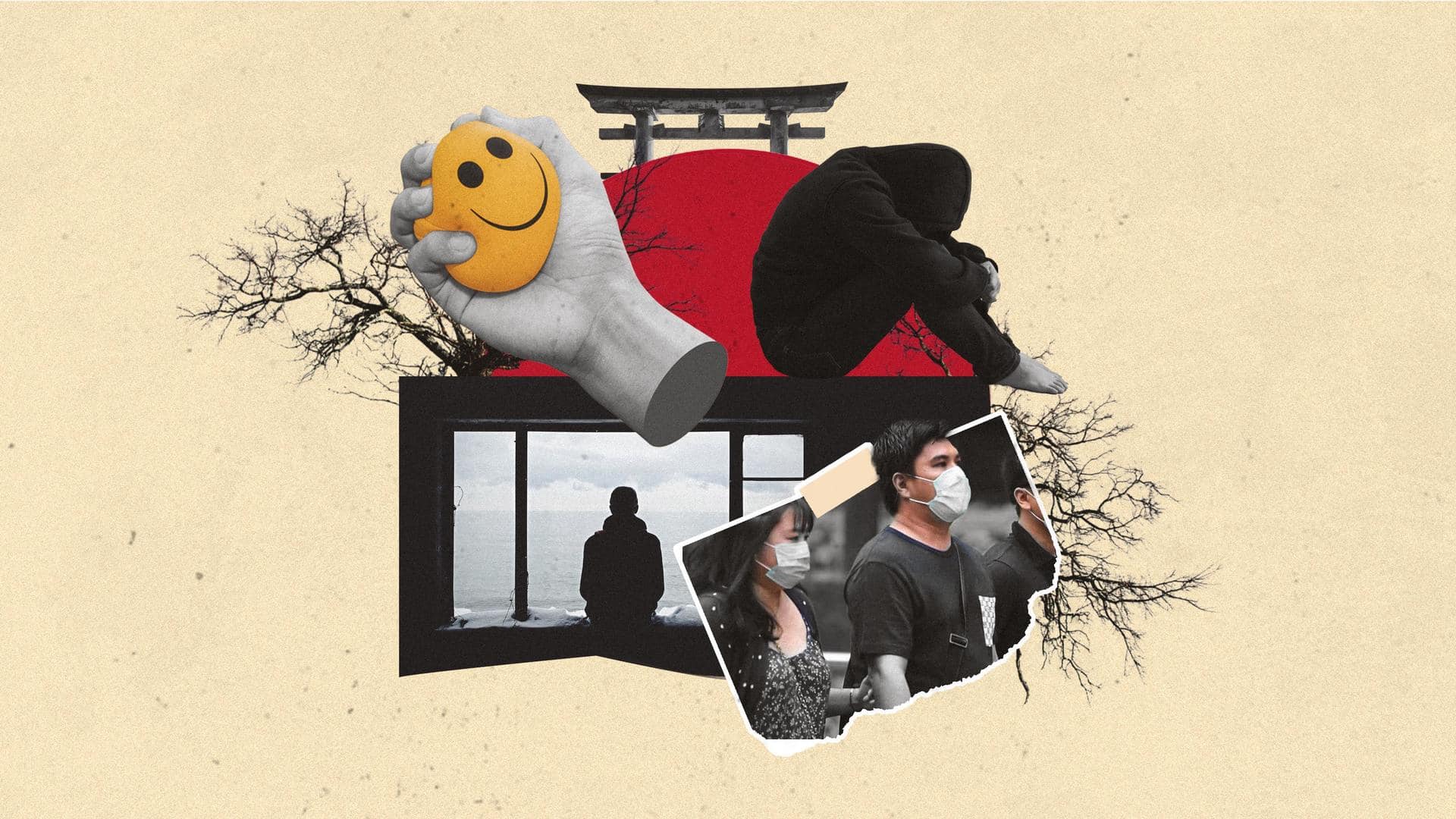
What is 'Hikikomori,' the Japanese phenomenon driving millions into loneliness
What's the story
While people worldwide are still recovering from the consequences of lockdowns and self-isolations amid the ongoing COVID-19 pandemic, a new phenomenon called "Hikikomori" is rapidly spreading in Japan. According to a government survey, Hikikomori, a phenomenon of social withdrawal, has sent nearly 15 lakh Japanese into insolation. Approximately 20% of the cases are attributed to the pressures of the coronavirus pandemic.
Context
Why does this story matter?
Since the outbreak of the global pandemic, economic, mental, and other social factors have taken a massive hit. A large number of Hikikomori began to withdraw from mainstream society due to relationship issues and after leaving or losing their jobs. A fifth of those surveyed by the Japanese government claimed that their desire for self-isolation stemmed from lifestyle changes during the global pandemic.
Know more
All you need to know about Hikikomori
The term Hikikomori refers to individuals, primarily young adults, who withdraw themselves from social interaction and isolate themselves for prolonged periods, sometimes for years. Hikikomori is also associated with depression, social phobia, and anxiety, and is thought to be a reaction to modern-day pressures such as intense competition, social isolation, and high academic expectations.
Details
Details on Hikikomori government survey
As per a report in Money Control, the Japanese cabinet office surveyed 30,000 people between the age group of 10 and 69 across the country last November and found that Hikikomori accounted for nearly 2% of people aged 15-62. For people between the age group of 40-64, around 44.5% stated their behavior had been triggered by leaving their jobs, while 20.6% cited the pandemic.
More details
Japanese authority takes steps to counter Hikikomori
The massive spike in people living in isolation has triggered some local authorities to take action. A ward in Tokyo named Edogawa is set to hold metaverse socializing events from June onwards to give Hikikomori a chance to meet individuals via their avatars. The ward is reportedly home to over 9,000 individuals, including students who have stopped attending classes.
Further information
Consequences of Hikikomori on people
Hikikomori has a substantial impact on those affected and on society as a whole. For those who experience the phenomenon, the consequences can be devastating, with social isolation leading to mental health problems like anxiety, depression, and difficulties in reintegrating into society. Furthermore, Hikikomori may have long-term consequences on people's economic and social prospects as well.
Further details
Hikikomori's impact on Japan
According to experts, Hikikomori is also linked to Japan's economic stagnation as well as the country's political and social challenges. The phenomenon can also trigger reduced productivity, making it difficult for people to contribute to the broader economy. It could also exacerbate demographic challenges such as a declining birth rate and an aging population.